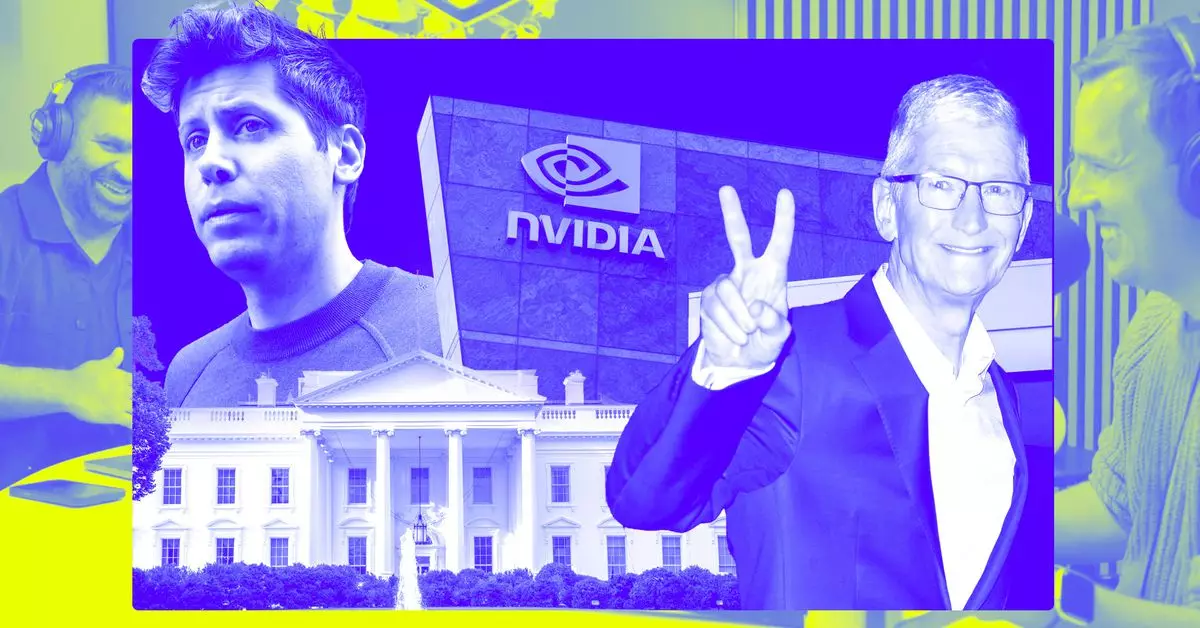In the ever-evolving landscape of consumer technology, the future often seems as unpredictable as it is exciting. With the rapid pace of innovation and the changing dynamics of major tech companies, predicting the fate of industry giants and emerging technologies can feel like an exercise in speculation. As we peer into the technological crystal ball for 2025, the insights shared by prominent tech analysts shed light on the possibilities – and uncertainties – that lie ahead.
Interestingly, the notion that the CEOs of the major tech firms will remain unchanged raises questions about industry dynamism. In a space typically characterized by both fierce competition and frequent turnover, the prediction suggests a surprising stability among significant players like Apple, Amazon, Google, and Microsoft. Critics might argue that such stability could signal stagnation, where innovation is sidelined by the comfort of familiar leadership. Will these leaders adapt to emerging threats, or will their lack of turnover hinder progress and transformative change?
On the flip side, should this stability materialize, it could imply a period of consolidation where established players fortify their positions against smaller, disruptive innovators. This brings us to the question of acquisitions – will strategic purchases redefine the competitive landscape or merely serve as band-aid solutions for struggling companies? The uncertainty surrounding Snap’s potential acquisition plays into this theme, highlighting the tense relationship between established firms and upstarts trying to carve out their niche in an oversaturated market.
Artificial intelligence remains a focal point in tech discourse, with predictions regarding OpenAI suggesting both a transition to a for-profit model and doubts around its profitability. The social implications of AI are equally compelling, especially the harrowing prospect of a major AI-related scandal. Such events would not merely be a blip on the radar; they could reshape regulations and public opinion surrounding AI technologies. In an era where societal trust is paramount, any such scandal could create long-lasting ripples through the industry, prompting calls for transparency and ethical governance in AI.
In this context, the debate over server-based AI tools versus local applications becomes increasingly relevant. As companies innovate, determining the balance between access, utility, and data privacy will be imperative. Social skepticism toward AI technologies could impede growth, necessitating a proactive approach from companies to foster a culture of responsibility.
The Gaming Industry: Expectations vs. Reality
Another area ripe for speculation is the gaming sector, particularly the much-anticipated release of Grand Theft Auto VI. Expectations are sky-high, with many predicting it will be a colossus in the industry. However, past experiences with gaming launches remind us that hype does not always translate into success. Learning from these experiences can prepare stakeholders for the unpredictable could come; perhaps consumer expectations will diverge from reality, creating a feedback loop of disappointment and disillusion.
In parallel, the gaming landscape’s evolution raises inquiries about what it means for other entertainment sectors. As gaming rapidly expands its market share in consumer attention, traditional media services face existential challenges. The changing tide is evident in the ongoing struggle of streaming platforms versus gaming; navigating this turbulent water requires innovation and agility to capture audiences.
As we discuss gadgets, the proposition that folding phones have reached mainstream status might be overly optimistic. While the technology is alluring, consumers often gravitate towards practicality over novelty; thus, whether folding phones can seamlessly integrate into daily life without succumbing to the “gimmick” label remains to be seen. Unpacking these trends is crucial for understanding what consumers value in their devices.
Platforms such as Bluesky and Threads warrant scrutiny as they vie for user engagement and relevance. The predictions suggest that Bluesky may dominate the landscape, but the reality check reminds us that user preference is fickle and dependent on a multitude of factors, including user experience and community culture.
Ultimately, as we approach 2025, speculation surrounding tech trends and company trajectories remains a riveting voyage. With established giants fiercely guarding their turf and emergent players challenging the status quo, the intersection of innovation and consumer expectations heralds an enticing, yet uncertain future. By analyzing trends, challenging assumptions, and remaining adaptable, stakeholders in the technology universe can better navigate the complexities that lie ahead.

